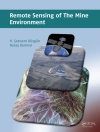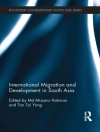Once upon a time, science was not divided into disciplines as we know it today. There was no distinction between so-called social and natural sciences, not to mention the fragmentation of the latter into physics, chemistry, biology, geology, etc. According to legend, the scientists those days would do their research in whatever environment they happened to find comfortable, which more often than not was in bathtubs or giant hot tubs – remember Archimedes! Then, somehow, these days we find ourselves compartmentalized into different departments in our universities, or divisions in our research institutes. (We suspect, for one thing, that is to ensure that we will get our paychecks delivered on time at the end of each month. ) Anyway, as anyone who has worked in the real world knows: when one is confronted with a completely new problem or phenomenon, it is usually impossible to neatly assign the problem to physics, chemistry, or, for that matter, computer science. One needs to recall and fuse together the knowledge one learned before and, if that alone is insufficient, to consult experts in other areas. This points to the shortcomings of the compartmentalization of knowledge in our educational systems. In recent years, something has changed. Under the banner of Complex Systems, some brave souls are not afraid to tackle problems that are considered intractable by others, and dare to venture out of their trained disciplines or departments to which they are attached.
Lui Lam & Vladimir Naroditsky
Modeling Complex Phenomena [PDF ebook]
Proceedings of the Third Woodward Conference, San Jose State University, April 12-13, 1991
Modeling Complex Phenomena [PDF ebook]
Proceedings of the Third Woodward Conference, San Jose State University, April 12-13, 1991
购买此电子书可免费获赠一本!
语言 英语 ● 格式 PDF ● ISBN 9781461392293 ● 编辑 Lui Lam & Vladimir Naroditsky ● 出版者 Springer New York ● 发布时间 2012 ● 下载 3 时 ● 货币 EUR ● ID 4600722 ● 复制保护 Adobe DRM
需要具备DRM功能的电子书阅读器












